The contracts signed by the International Drillers were generally for a period of three years. The company employing the drillers would pay for their travel, except in the event of the cancellation of a contract in which case, the drillers were responsible for paying their own way home. When travel to the international oil fields usually took months, it's no wonder that these men were not keen to come home early. In some cases, the feeling of adventure and discovery, as well as the excellent pay offered by work abroad continued to draw the men away from their families at home in Canada.
Humphrey Tracy spent 32 years drilling in the oil fields of Burma (modern Myanmar), Sumatra, Persia (modern Persia) and South America, and had many interesting stories to tell of his time abroad. On one occasion while trekking through the Burmese jungle, he and his crew encountered a snake slung between two trees. The snake was so long that neither the head nor the tail could be seen. Tracy's immediate reaction was to pull out his gun and attempt to shoot the snake but he was persuaded against it when his crew of local men ran away in haste. They knew if that if Tracy shot the snake, it would thrash hard enough to pull down the surrounding trees.
Tracy brought mementoes home to his wife and children who lived in Petrolia, including Persian rugs and 20-foot snake skins. He even brought home four elephant feet, but three of the feet rotted during his travel home. The remaining foot was hollowed out and used as a planter. Unfortunately, all of his time spent abroad estranged Tracy from his family and his choice to continue working in the international fields put a strain on his relationship with his wife. In 1931, Mary Tracy filed for divorce from her husband and Humphrey Tracy lived out the rest of his days in Trinidad where he died of malaria in 1940.



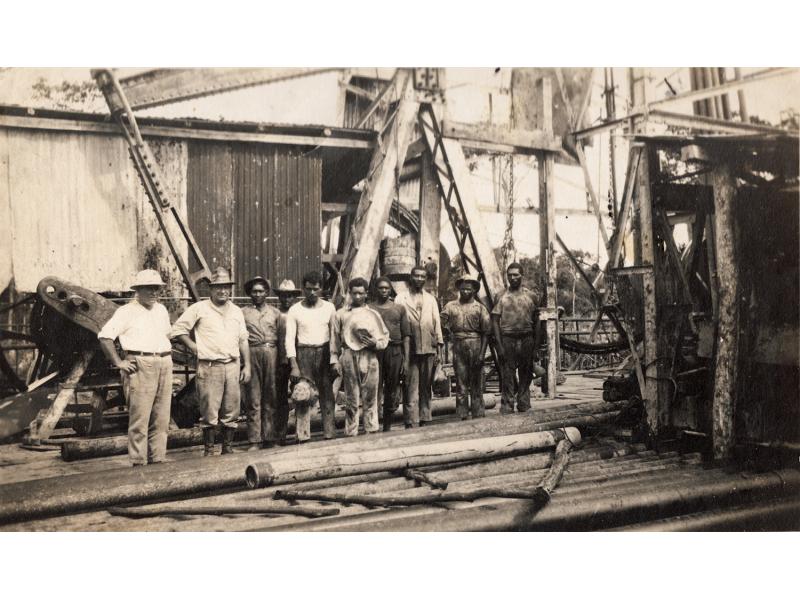 Humphrey Tracy and his rig
Humphrey Tracy and his rig 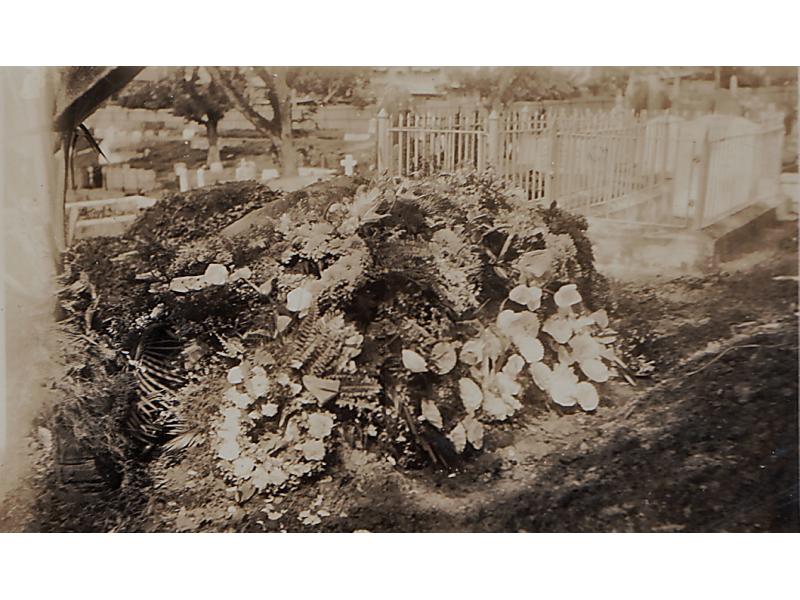 Humphrey Tracy's grave in Trinidad, where he died of malaria in 1940.
Humphrey Tracy's grave in Trinidad, where he died of malaria in 1940. 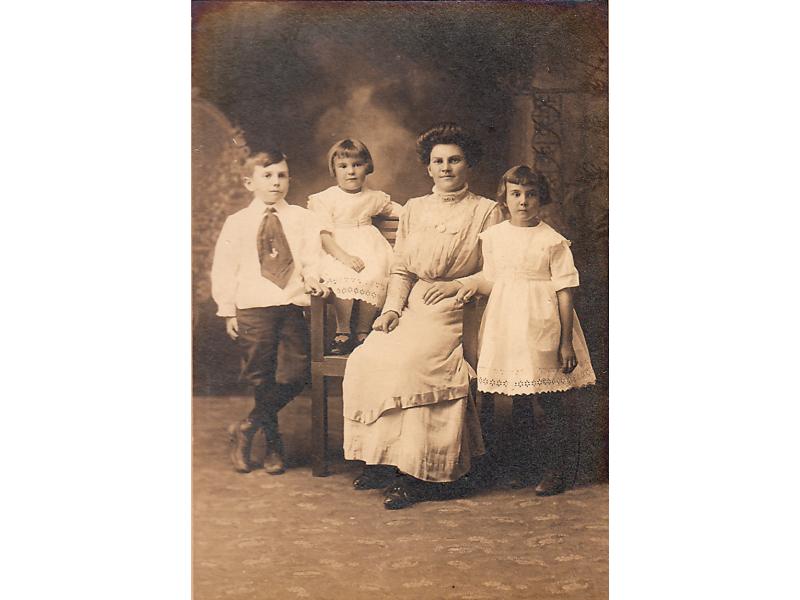 Mary Tracy with her children, Verne, Bell and Jess in 1910.
Mary Tracy with her children, Verne, Bell and Jess in 1910. 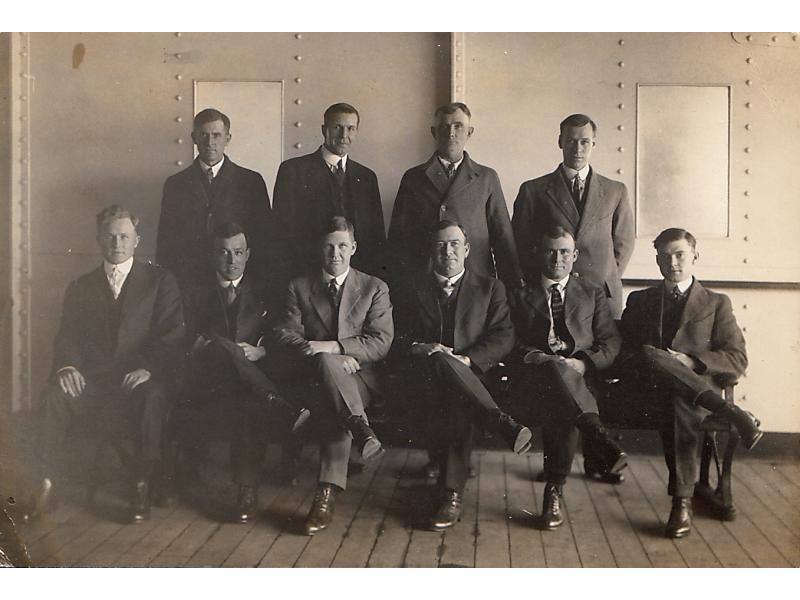 On board the Empress of Asia, March 21, 1917. Humphrey Tracy is sitting, fourth from the left.
On board the Empress of Asia, March 21, 1917. Humphrey Tracy is sitting, fourth from the left. 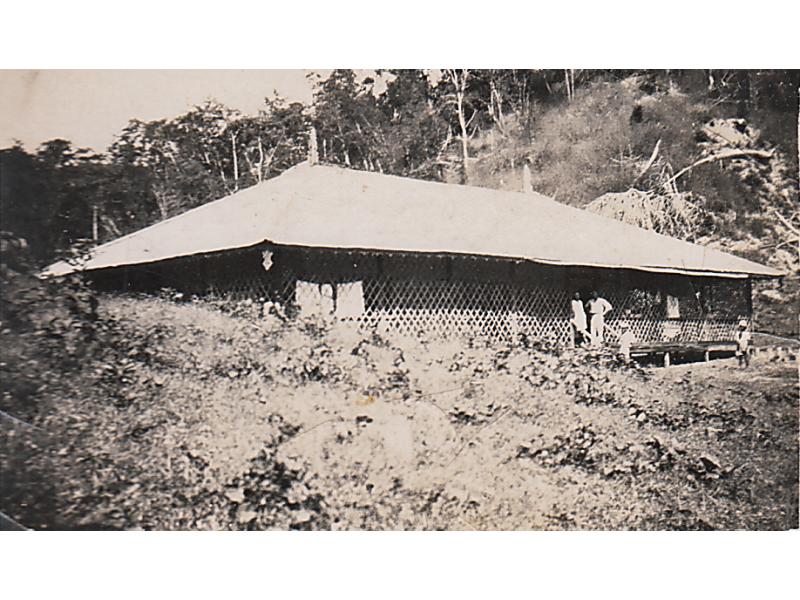 Humphrey Tracy's bungalow in Burma (modern Myanmar). The lattice work is to keep the tigers out.
Humphrey Tracy's bungalow in Burma (modern Myanmar). The lattice work is to keep the tigers out. 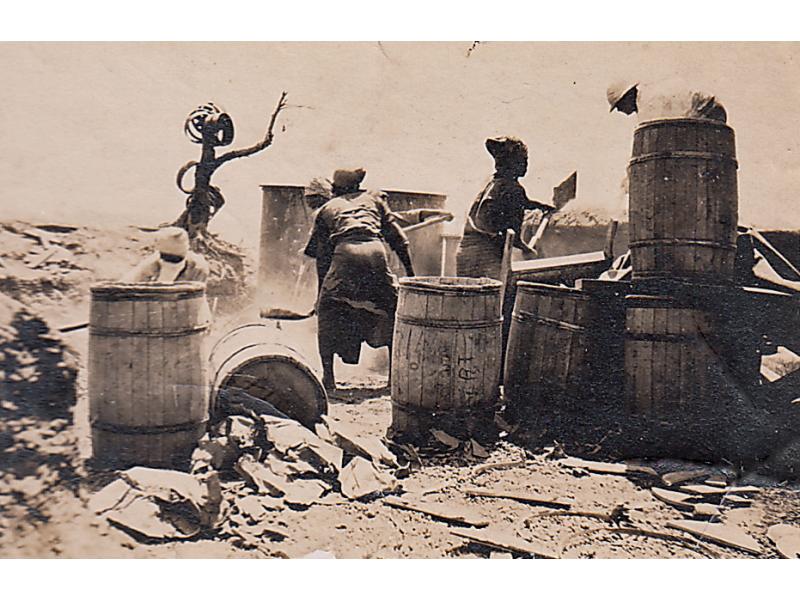 Cementing a well in Yenangyaung, Myanmar. Tracy is standing by the barrels. Dr. Bleech, the head of the company, is in the left hand corner.
Cementing a well in Yenangyaung, Myanmar. Tracy is standing by the barrels. Dr. Bleech, the head of the company, is in the left hand corner. 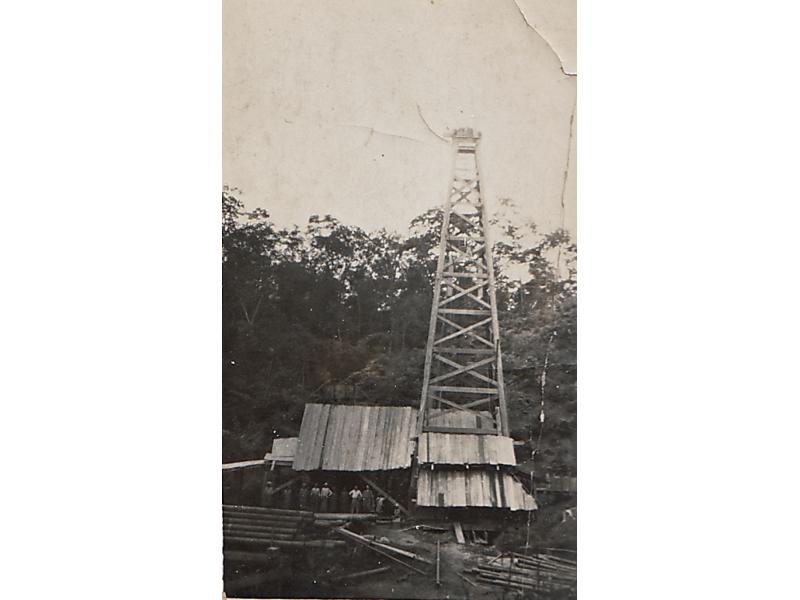 Kyetyobin Well #1 of Union Oil, 40 miles from Salin, Burma (modern Myanmar)
Kyetyobin Well #1 of Union Oil, 40 miles from Salin, Burma (modern Myanmar) 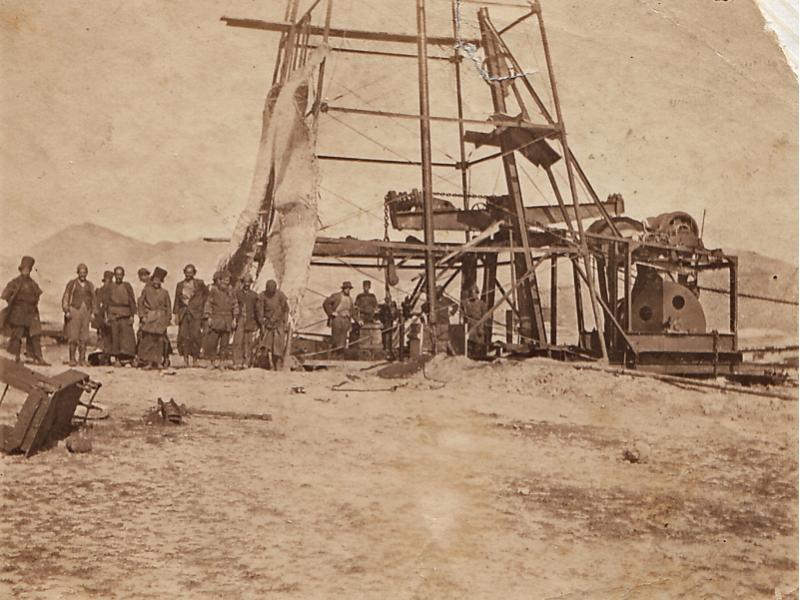 Oil rig and crew in Persia (modern Iran)
Oil rig and crew in Persia (modern Iran) 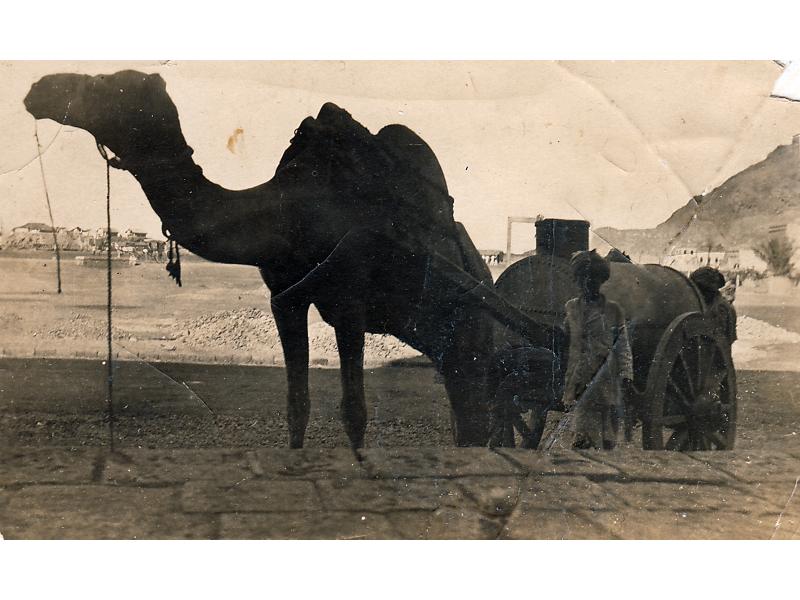 A camel pulls a boiler to the location of an oil rig in Persia (modern Iran).
A camel pulls a boiler to the location of an oil rig in Persia (modern Iran). 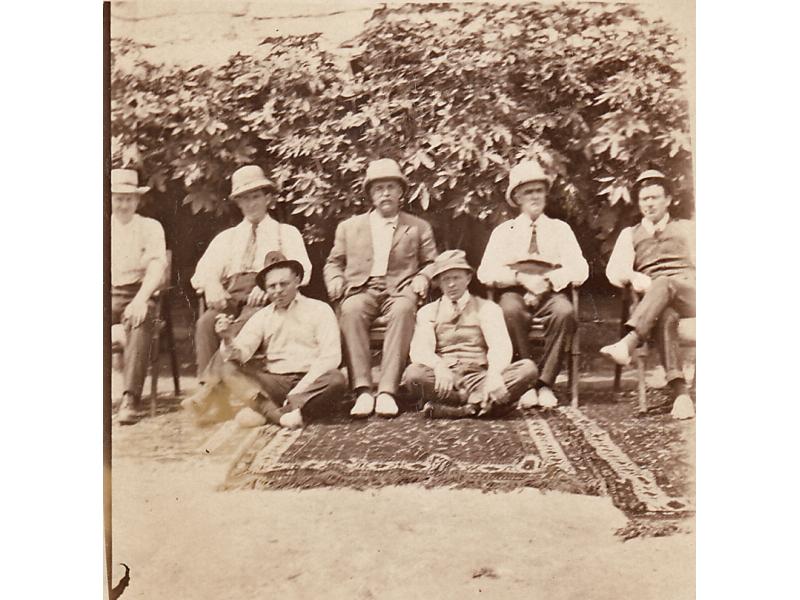 Humphrey Tracy and others sitting on his Persian rugs at their camp in Persia (modern Iran)
Humphrey Tracy and others sitting on his Persian rugs at their camp in Persia (modern Iran) 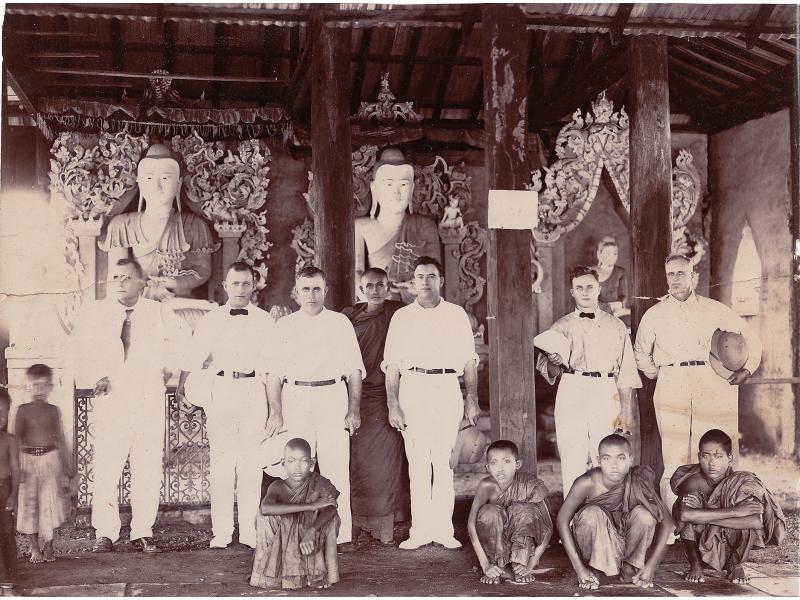 Group of international drillers at a temple in Burma (modern Myanmar). Tracy is fourth from the left.
Group of international drillers at a temple in Burma (modern Myanmar). Tracy is fourth from the left. 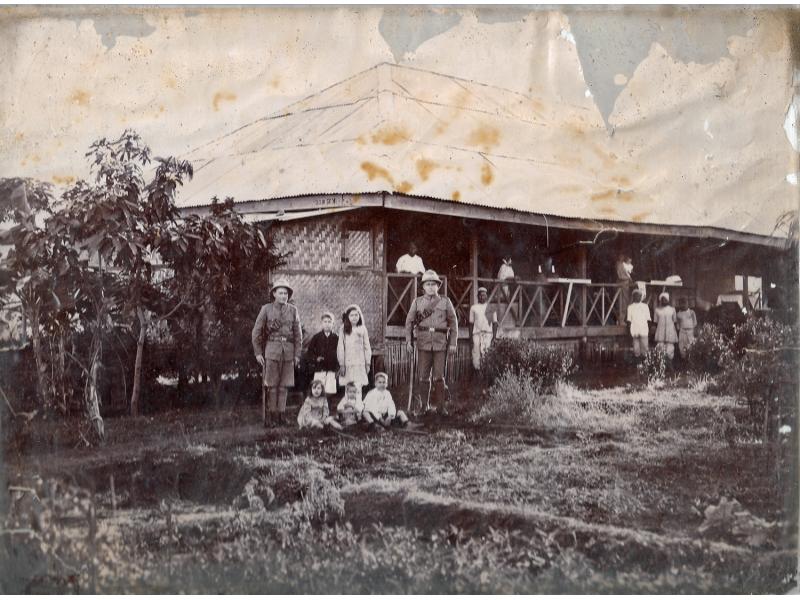 A bungalow in Rangoon, Burma (modern Yangon, Myanmar).
A bungalow in Rangoon, Burma (modern Yangon, Myanmar). 








Add new comment